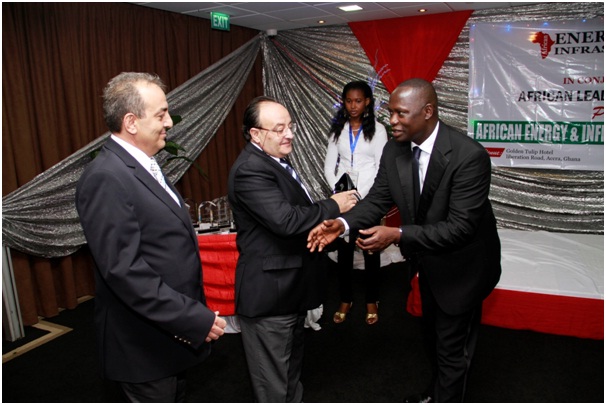 The answer to Africa’s development challenge is in the hands of Africans not Americans, Europeans, or Chinese. The answer will not come from Development Bank initiatives, aid incentives, or relief programmes. And the goodwill of others, however well intentioned will never be enough to empower our industries and our people.
The answer to Africa’s development challenge is in the hands of Africans not Americans, Europeans, or Chinese. The answer will not come from Development Bank initiatives, aid incentives, or relief programmes. And the goodwill of others, however well intentioned will never be enough to empower our industries and our people.
What is the sustainable solution for African development? What we need are more capitalists with a passion for Africa. What we need are Africapitalists. Africapitalism is an economic philosophy: that the African Private sector has the power to transform the continent through long-term investments, creating both economic prosperity and social wealth. It is also a call- to-action for us Africans to take responsibility for our own development and for non-Africans to evolve their thinking about how best to channel their efforts and investments in the region.
Case in point: in 1997, I led a group of entrepreneurs in the acquisition of a Nigerian bank that was on the verge of collapse. We did what business people and investors do all over the world: we created a roadmap for the organisation. At the heart of our mission, however, was an important social vision: to democratize the banking sector in Nigeria. At the time, in a population of more than 110 million people, fewer than 10 percent had bank accounts. We knew we could do better. There was a huge potential market and untapped demand, and within seven years we had become one of Nigeria’s top five banks. Then something amazing began to happen. The banking system we built started “doing good” and solving people’s problems, improving their productivity, and eliminating stubborn inefficiencies in what had been a very “undemocratic” sector. All the “good” happening around us accelerated as we grew, and in 2005 we merged with the third largest bank in Nigeria to become what is now known as United Bank for Africa (UBA). Today, UBA has over 7 million customers and 20,000 employees in 18 African countries, and its impact is ever growing, pioneering cross border transfers for individuals and funding inter African trade for corporates, playing a part in the fundamental shift in Africa’s economic dynamic to domestically driven, value adding growth.
The point of my story is this: through private sector development, the Nigerian banking sector became a force for good. It has encouraged greater entrepreneurship in the economy, developed human capital, solved problems for consumers and businesses, created jobs and wealth for tens of thousands of employees, and reduced trade and business barriers among African nations.
Africa is now held up as capitalism’s final frontier; as such it offers boundless economic opportunity not just for investors and entrepreneurs to build successful businesses, but also for economic growth to solve many of the continent’s most pressing social challenges. At the heart of Africapitalism is a private- sector approach to Africa’s development. It is a deceptively simple notion, but a powerful one that has the potential to remake the continent and put Africa on an equal economic footing with the rest of the world. If it is to succeed, Africapitalism must be built upon four pillars:
The first is ‘Africans for Africa.’ It is our duty as Africans to develop Africa, particularly those who have benefited from Africa’s recent growth. Those with the means, vision and enterprising spirit should come forward and reinvest in Africa the considerable wealth they have generated here.
Second, investment must be long term. The recent global financial crisis has shown that short-term economic objectives cannot realistically lead to sustainable growth. Africapitalism prescribes a long-term focus. It says: Let us invest for ten years, twenty years, and beyond.
Third, ‘impact investment’ must be catalytic and sustainable. We must create maximum social and environmental impact in key sectors of the economy that make a difference in people’s livesi.e., we do well by doing good. Africapitalism dictates that we can build economic prosperity and social wealth simultaneously, and without compromise. True sustainability can be achieved no other way.
Fourth, we must increase our competitiveness. Here the public sector plays a crucial role. It is government’s chief responsibility to create an enabling environment in which the private sector can engage in wealth-generating economic activity competing on the world stage for capital, talent, customers, and markets. Africans can, and must, develop the continent for ourselves. At UBA, we demonstrated that through private sector development, our impact on the lives of ordinary people could be immense. This kind of success is being replicated every day, in all kinds of industries, all over Africa. This impact is Africapitalism in action.
We can turn the tide and raise up the continent ourselves, using long term, impact investments by Africans in Africa to create a competitive, thriving private sector.
Yet, what we need most urgently without which all our potential means nothing sis to embrace with deep conviction, as Africans, the idea that Africa is and can be the source of wealth for its own people, and for posterity.


